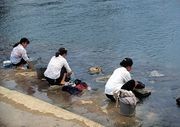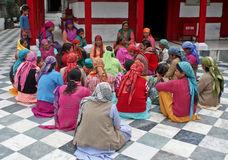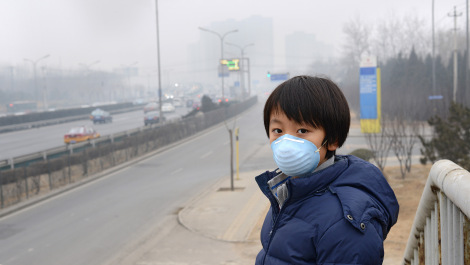
Dear friends,
In the book of Genesis, God creates our beautiful world and is happy with it. God then creates humans to serve as caretakers for this wonderful Creation. Today we witness the loss of ecosystems and the extinction of growing numbers of species at the expense of human “progress” that has not only excluded huge portions of humanity from its benefits, but has worsened their conditions by destroying the environments in which those excluded communities live.
Pope Francis said in his weekly address on May 20, 2014, following a five-day summit on sustainable development, that if we destroy Creation, Creation will destroy us. In turn, we will also destroy a sign of God’s love for us.
But there are signs of hope through collective action on a local and global scale to shift from a paradigm of human progress based on growth and greed to a paradigm of justice that puts Creation and human dignity at the center.
We hope you enjoy the Maryknoll Office for Global Concern’s inaugural issue of Encounters: Where faith, economy and ecology meet. Each section of Encounters focuses on one of the four pillars of the Faith Economy Ecology Transition statement endorsed by more than 80 groups. (Read the statement in its entirety here.) Each issue of Encounters will feature the challenges posed by the current economic growth paradigm and shine light on the hopeful ways communities are responding to protect human dignity and God’s beautiful Creation.
In this issue we highlight how networks, communities, and nations are creating more equitable economies and food distribution, rebuilding relationships between humans and the rest of nature, and we share ideas on how each of us can live simpler to reduce our impact on God’s creation.
Sincerely,
Chloe Schwabe and David Kane - The Maryknoll OGC Faith, Economy, Ecology Team
Paradigm shift in mindset and values
Watershed Discipleship Alliance |
|
 |
A growing movement of faith-based groups is calling for a deeper connection between people and the environment by focusing on the watershed in which they live (“the area of land within which all living things are inextricably linked by their common water course”). An interesting map of the U.S. if states borders were drawn around watersheds can be found here. While the term watershed discipleship has not been fully defined yet, it involves better understanding and appreciating your surroundings and learning from scriptures about how and why we need to care for God’s creation. Their “Call for a Watershed Alliance” defines three areas in need of transformation: the need to “re-read our sacred texts” from an ecological point of view (a good example is Ched Myers' reflections on Isaiah 5); to “re-place” our theologies, spiritualities and practices using our watershed as our focal point for education and action – “to become disciples of our watersheds”; and to use our churches, synagogues, mosques and other holy spaces as places to learn and educate about these issues. |
Simple living for the soul |
|
 |
It is clear that in the future, we will have to have simpler lifestyles than the vast majority of people in the U.S. currently do. Earth simply does not have enough resources to continue with such consumptive living. Many have written both about why we will need to change our lifestyles and about how we could do that concretely. Many of their writings can be found in the Simplicity Institute’s website. In The Simpler Way, the authors provide a “practical action plan for people wishing to live a ‘simpler life’ of reduced and restrained consumption. The focus is on concrete steps you can take today, in a variety of areas of your life, to prepare for the future. The Simplicity Collective provides even more information about why and how to move toward a simpler lifestyle with less consumption and more satisfaction and happiness. They also publish articles every few days around these themes. |
Market-based solutions humor |
|
 |
Another paradigm that needs to change is the assumption among many, especially business and political leaders that market-based solutions and economic growth are always the best ways to address the economic and environmental crises we face. Counter Balance, a European coalition of development and environmental non-governmental organizations working to “make European public finance a key driver of the transition towards socially and environmentally sustainable and equitable societies,” has produced an amusing video of a psychologist talking to a young person representing the European Union about its neuroses around markets. |
Economy of right relationship
Ecuador moves to free up knowledge |
|
 |
The ways that most countries pay for creating knowledge (patents, copyrights and other policies that create monopolies) are incredibly inefficient and result in unnecessarily expensive technologies. They also limit innovation by making access to information more difficult for other inventors. Unfortunately, instead of moving toward more efficient and equitable ways to reward innovation, major trade agreements currently being negotiated (the Trans-Pacific Partnership between 12 countries and the Trans-Atlantic “Free Trade” Agreement between the U.S. and Europe), aim to strengthen these failed policies by extending monopolies and allowing companies to re-patent products with minute changes. Meanwhile, the government of Ecuador, in an effort to free up knowledge, has initiated a process to “remake the roots of Ecuador’s economy and thereby begin the transition into a society of free and open knowledge.” As Michel Bauwens, founder of the P2P Foundation and leader of the Ecuadoran process points out, “The global economy treats nature and material resources as if they were infinite, and knowledge as if it was scarce. We have to swap those two around." The process, called FLOK, for Free/Libre Open Knowledge, is part of Ecuador’s five-year strategic plan called the Plan of Good Living. In the plan, Ecuador plans to implement a number of policies that point toward the changes needed to bring the global economy to fit within the physical limits of Earth. |
Trade agreements helped create China’s environmental worries |
|
|
|
Pulitzer Prize-winning Inside Climate News has published two parts of an eye-opening three-part series (here and here) showing how trade agreements negotiated during the Clinton administration led to a massive transfer of production from the U.S. to China, which in turn has created the serious environmental problems that country is currently facing, with dangerous levels of smog in cities causing an estimated 1.2 million premature deaths each year. Unfortunately, China’s solution to the smog problem, creating massive “coal bases” in rural areas to turn oil into cleaner-burning liquid fuels to be used in cities, releases twice as much greenhouse gases, posing a serious threat to the global climate. By granting China most-favored nation status and pushing for its entrance into the World Trade Organization (WTO), the Clinton administration initiated a massive transfer of industrial production from the U.S. to China – in the first seven years of China’s membership in the WTO, 2.4 million manufacturing jobs were moved to China, according to the Economic Policy Institute. As predicted by many labor and environmental groups at the time, China’s lax safety and environmental laws together with the fact that it is heavily dependent on coal would result in massive environmental problems. Even Clinton’s chief trade negotiator Mickey Kantor admitted that “we made a mistake” by not including environmental safeguards in trade policies with China. Today, an estimated one-third of China’s emissions come from producing exports to the U.S. and other nations. In response to its serious urban smog problem, China plans to build 40 coal bases in rural areas where coal is converted to liquid gases that burn more cleanly as well as power, gasoline, chemicals and fertilizers. While having a positive effect in reducing urban smog, the process produces twice as many greenhouse gases as burning the coal directly would produce. “Experts estimate that if China's planned coal bases are built, the country's emissions would likely hit 10 billion tons a year—putting it on track to consume the world's remaining 349 billion tons by 2050. Estimates are that the 16 bases already being constructed will emit 1.4 billion tons of carbon dioxide per year by 2020, while fully developing the heavily polluting tar sands in Canada will produce “only” 420 million tons per year. And remember that there are plans to build 40 bases. It is a pretty intimidating reality, which is why we look forward to the third part of the series where author William Kelly plans to answer the question, “Can the mess be untangled and environmental and economic hope be restored?” |
Cooperation on water resources a key to peace |
|
 |
One important way to deal with the use of natural resources is through the creation of commons where stakeholders create systems for sustainable and equitable usage. Elinor Ostrom, who won the 2009 Nobel Prize in Economics, has extensively studied the use of commons around the world showing that it is an important way to use resources equitably and sustainably. She found that most successful examples of communing included aspects of eight key principles. The Strategic Foresight Group recently released a study showing the extreme importance of cooperation over the use of water that lies between two countries (full report here, 11-page summary here). The study found that “out of 148 countries having trans-boundary water resources, 37 face the risk of war and they are home to more people on the earth than others. These are precisely the countries which have avoided active water cooperation with their neighbours.” As the authors boldly state, “Any two countries engaged in active water cooperation do not go to war for any reason.” |
Thriving and resilient communities
“Food hubs” help localize food systems |
|
 |
Having a close source of food will become increasingly important in the future as rising fuel prices will make the current globalized system very expensive and undependable. The rising number of farmers’ markets around the U.S. is promising, though local food sales are only three percent of the total food sales, so it clearly must be scaled up. A promising for this scaling up are food hubs, central locations where goods and produce can be aggregated, processed and shared with consumers and institutions. Or as defined by one activist involved in creating a food hub in Ontario, Canada, “networks and intersections of grassroots, community-based organizations and individuals that work together to build increasingly socially just, economically robust, and ecologically sound food systems that connect farmers with consumers as directly as possible.” A food hub frees up farmers to work their fields instead of sitting at farmers markets and provides a more constant source of fresh agricultural products for consumers. Another role of the food hub is to work in communities showing the importance of local food and showing people how to cook meals with the vegetables they receive. Two examples of virtual food hubs are the Open Food Network, currently active in Australia but planning to go global and Ontariofresh.ca |
India’s local alternatives to global development |
|
 |
Local Bites is a podcast of the International Society for Ecology and Culture. They have posted an excellent interview about working localized alternatives to India’s globalized development model. They interview “scholar/activist, Ashish Kothari about his book, Churning the Earth: The Making of Global India, co-authored by Aseem Shrivastava. During the first half of the interview, Kothari provides a sobering account of the social and environmental impacts of globalized development in India, arguing persuasively that the costs outweigh the benefits, and calling into questions a number of taken-for-granted assumptions about ‘economic growth,’ ‘progress,’ and the so-called inevitability of urbanization. In the second half (28:24), Kothari highlights a diverse range of localist alternatives taking place in communities throughout India, forerunners to what he calls 'radical ecological democracy', that can ‘take us all to higher levels of well-being, while sustaining the earth and creating greater equity.’”
|
Shrinking power and influence of corporations
Communities fight to take their rights back from corporations |
|
 |
The Community Rights Movement, one of the most promising people’s movements in the U.S., is composed of people in cities, towns and townships that have passed laws or ordinances that diminish corporate influence and power within their jurisdictions. At least 150 communities in nine states have successfully done this, most with the legal assistance of the Community Environmental Legal Defense Fund. Peak Moment Television: Locally Reliant Living for Challenging Times has a two-part interview with Paul Cienfuegos who has been involved in many of these struggles. The first part of the interview focuses on the inspiring stories of communities defining what corporations can and cannot do. It shows how they have progressed from defensive battles against corporations bringing unwanted things like polluting hog farms and fracking to offensive strategies where communities are declaring a human right to water, food, sustainable energy and even providing rights for nature itself. Part two focuses on the concept and history of corporate personhood. It is a very little known story that needs to be more widely understood. For more on the history of corporations in the U.S., see our six-part series with questions for group discussion. |
Unraveling corporate banking power |
|
|
As we have clearly seen since the 2008 global financial crisis, the financial sector of the economy has become too large and powerful. It was the largest banks that caused the crisis and then benefitted most from the “solutions.” Meanwhile, cooperative banks and smaller institutions quietly weathered the crisis well. The New Economics Foundation in the UK recently released an excellent study of cooperative banks in a number of European countries and compared them to the performance of major commercial banks. The authors found that “cooperative banks outperform shareholder banks on a number of measures: they generate more stable long-term profits, they provide better customer service, and they boost local economies by lending more to small and medium-sized businesses. Plus, their more prudential approach to managing capital allowed them to weather the financial crisis better than the commercial banking sector, demonstrating their positive contribution to financial stability.” This is part of the reason why more than nine and a half million people have closed their accounts with commercial banks to open them in community banks, credit unions or other cooperative banks as part of the Move Your Money project. Consider doing the same if you haven’t already. |
ENCOUNTERS is an e-newsletter publication of the Maryknoll Office for Global Concerns’ Faith Economy Ecology Program. Each section of ENCOUNTERS focuses on one of the four pillars of the Faith Economy Ecology Transition statement endorsed by more than 80 groups. Read the statement in its entirety here.

